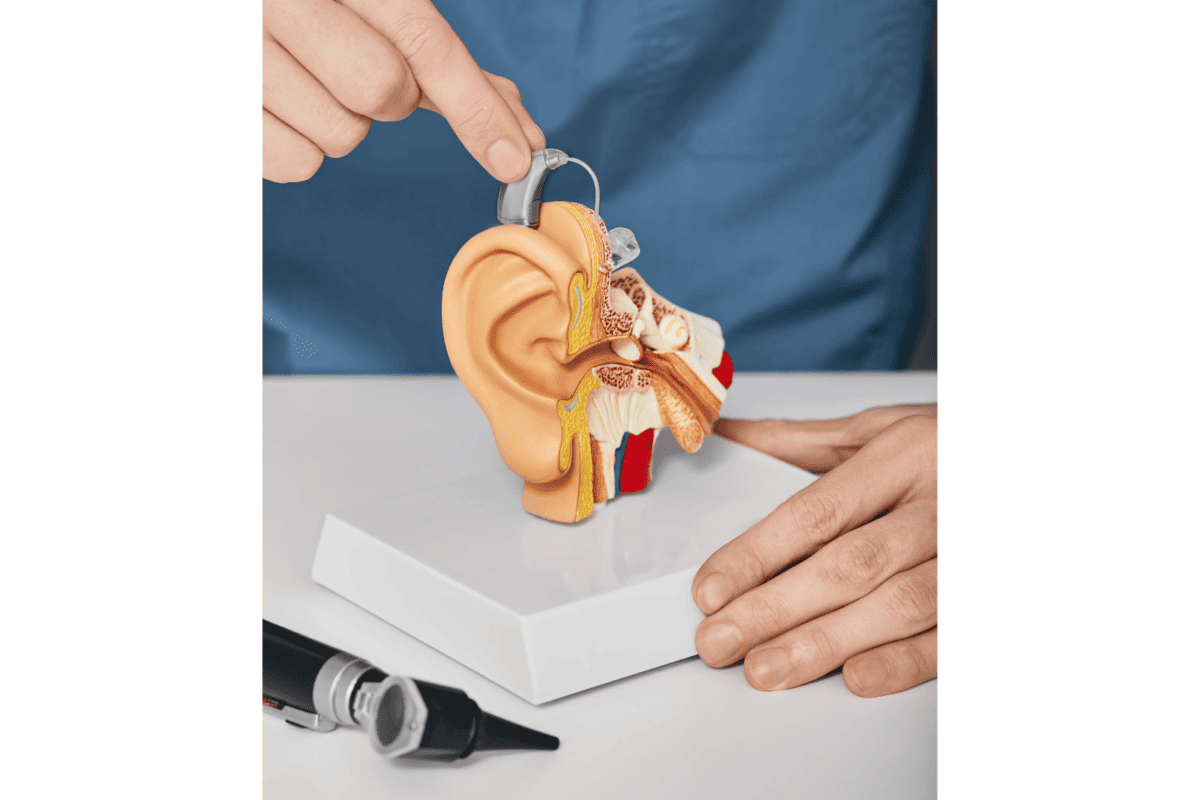Hearing loss is a challenge that millions of people around the world face daily. Fortunately, advances in technology have brought us hearing aids, remarkable devices that can significantly improve the quality of life for those with hearing impairment. These devices have come a long way in recent years, offering improved sound quality, comfort, and discreetness. However, like any technological innovation, hearing aids can encounter common issues.
Advancements in Hearing Loss Prevention
Prevention is always better than cure, and this adage holds true for hearing loss. In recent years, there have been remarkable strides in hearing loss prevention. One notable advancement is the increased awareness of noise-induced hearing loss (NIHL). Prolonged exposure to loud noises, such as music concerts and heavy machinery, can damage the delicate structures of the inner ear. Researchers have developed smartphone apps that measure noise levels, allowing users to protect their hearing by avoiding dangerous noise environments.
Moreover, ongoing research has explored the potential protective effects of certain nutrients and antioxidants on hearing. Studies suggest that a diet rich in antioxidants like vitamins A, C, and E, as well as minerals like magnesium and zinc, may help safeguard against age-related hearing loss. While these findings are promising, it’s important to consult with a healthcare professional before adding supplements to your diet.
Early Detection and Diagnosis
Early detection is paramount in managing hearing loss effectively. Regular hearing screenings, especially for individuals over 50 or those exposed to high noise levels, can identify issues at their onset. Advances in hearing screening technology have made it easier to detect hearing loss in its early stages. Audiologists now use innovative methods like otoacoustic emissions (OAE) and auditory brainstem response (ABR) testing to diagnose hearing problems with greater precision and speed.
Additionally, advancements in telemedicine have made it easier for individuals to access hearing assessments remotely, ensuring that even during times of limited physical contact, hearing loss can still be diagnosed promptly. Remember, the sooner you detect hearing loss, the sooner you can address it and improve your overall quality of life.
Common Problems with Hearing Aids and Their Solutions
Despite the impressive progress in hearing aid technology, users may still encounter common issues. Let’s explore these problems and offer practical solutions:
Feedback and Whistling Sounds:
Hearing aids sometimes produce feedback or whistling sounds. This can occur when the device is not properly fitted, or when there is a buildup of earwax. To resolve this, consult your audiologist for a proper fit and regular earwax removal.
Discomfort and Irritation:
Some users experience discomfort or irritation due to the device’s fit or materials. Regular cleaning, proper maintenance, and periodic adjustments by your audiologist can alleviate this issue.
Inconsistent Sound Quality:
Hearing aids may occasionally deliver inconsistent sound quality. This could be due to low battery levels, interference from electronic devices, or issues with the hearing aid itself. Ensure your hearing aids are properly charged, and consult your audiologist if problems persist.
Difficulty with Speech Understanding:
Hearing aids are designed to enhance speech comprehension, but some users may still struggle, especially in noisy environments. Advanced hearing aids now incorporate directional microphones and noise reduction algorithms to improve speech clarity in challenging situations.
Connectivity Issues:
Many modern hearing aids offer Bluetooth connectivity to link with smartphones and other devices. If you encounter connectivity problems, make sure your devices are compatible and check for software updates. Your audiologist can provide guidance on troubleshooting connectivity issues.
Future Interventions and Hope
The future of hearing care is promising, with ongoing research focused on innovative solutions. One exciting area is the development of cochlear implants, which can restore hearing for individuals with profound hearing loss. These devices are becoming more advanced, offering improved sound quality and compatibility with various forms of hearing loss.
Additionally, gene therapy holds potential for the treatment of hereditary hearing loss. Researchers are exploring ways to repair or replace damaged genes responsible for hearing impairment, offering hope for individuals with genetic predispositions to hearing loss.
Hearing aids have revolutionized the way we address hearing loss, providing a lifeline to individuals seeking to regain their auditory experiences. However, it’s essential to understand that occasional issues may arise. By staying informed about the latest advancements in hearing loss prevention, diagnosis, and management, you can maximize the benefits of your hearing aids and overcome common problems.
Remember, early detection is key to effective hearing loss management. Regular screenings and proactive communication with your audiologist will help you address any issues promptly. As we look ahead to the future, promising interventions and treatments offer hope for those affected by hearing loss, underlining the importance of ongoing research and innovation in the field of audiology. By staying informed and proactive, you can ensure that hearing loss doesn’t hold you back from living life to the fullest.

